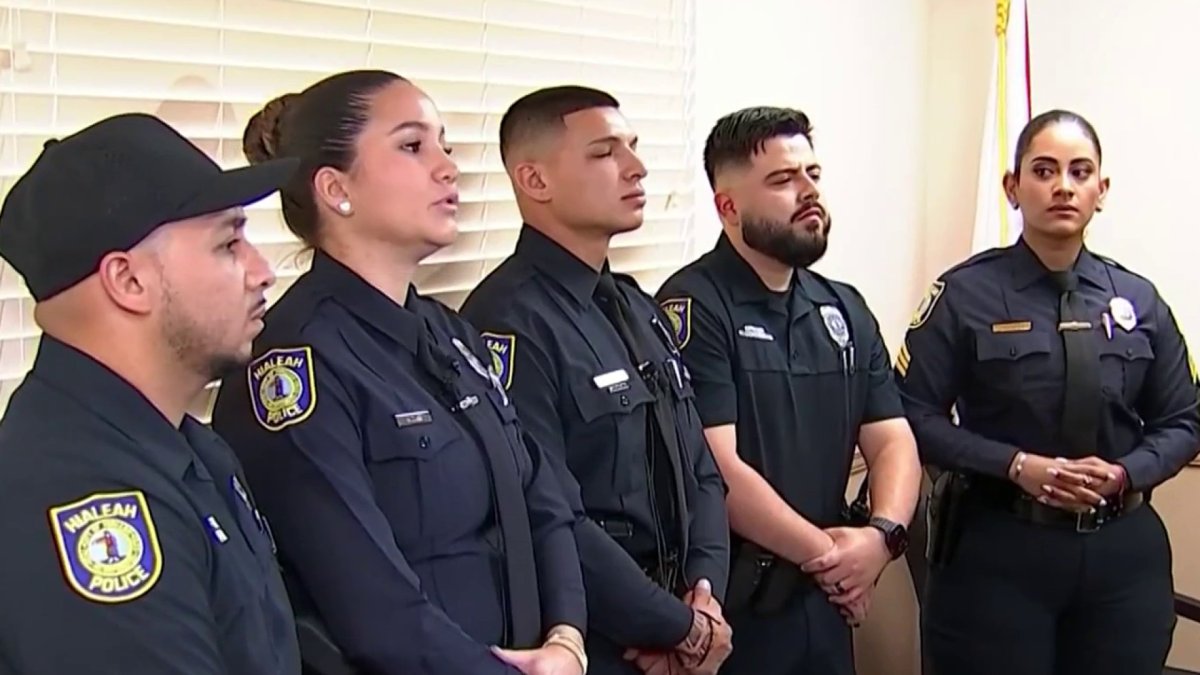According to the National Alliance on Mental Illness, more than one in five adults in the United States is experiencing mental illness.
Last Thursday, the City of Hialeah police received a call from a man saying he was going to end his own life by jumping off the fourth floor of a Bank of America building. After ensuring patrons were outside, Officer Diaz was the first to make contact.
“My first thought was, how do I get him to pay attention to me and pull him away from the border where he was at?” she said.
She spoke to him, and he became calm. That’s when Officer Ruiz stepped in.
“I began to get his attention, asking him what he needs, what can we do to help him,” Ruiz said.
Ruiz kept speaking, offering a distraction for Alvarez.
“I didn’t want him to jump, so I was debating it myself, like, should I do it, should I not?” Alvarez said.
Body-worn camera footage shows Alvarez grab the man and bring him down to safety. The individual was Baker Acted and is now receiving care.
The officers who responded to the call said they receive mental health calls daily. Alvarez said the training they receive has evolved from years past and is now focused on getting the individual to come out on their own terms and give them what they need.
“You need to have a skillset when you are interacting with someone going through a mental health episode or challenge,” said Dr. Nathaly Desmarais of Florida International University.
The licensed clinical psychologist said mental health is more prevalent than you think.
“We see 3 to 4, possibly 5% of the population experiencing symptoms of depression, anxiety, roughly 1 to 2, sometimes 3%” Dr. Desmarais said.
The Assistant Dean of Student Affairs said it impacts a person’s life in so many ways.
“How we feel, how we act, how we think, and oftentimes if we don’t have good mental health, we get into these states where we are unable to control or make sense of those aspects,” she said.
Which is why it’s important to seek support when you can and know how to help someone in need. Dr. Desmarais said that if you know someone who is currently having an episode or crisis, it’s important to stay calm, speak softly, be patient – because it could be hours before there’s a resolution – and show empathy.
If you are going through a crisis, you can call 988, which will provide immediate support. If you are not in crisis, you can call 211 and be connected with a professional.
To find counselors, therapists, or to speak to a mental health professional, visit NAMI Miami.
For teachers, law enforcement, or other professionals who would like mental health training, you can take a course by the National Council on Wellbeing.
If you or someone you know is in crisis, call or text 988 to reach the Suicide and Crisis Lifeline or chat live at 988lifeline.org. You can also visit SpeakingOfSuicide.com/resources for additional support.

